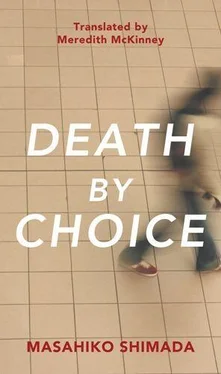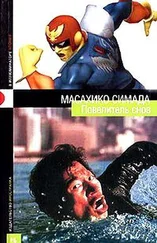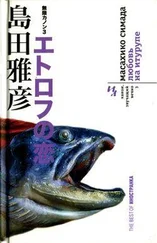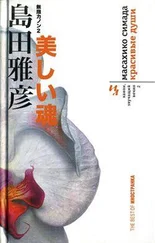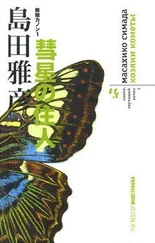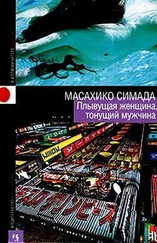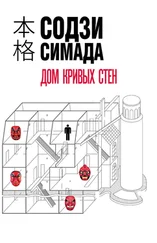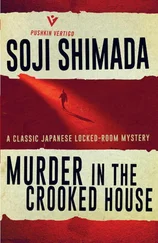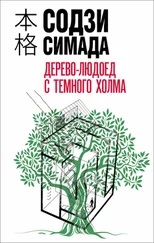Kita checked the name above the reception desk where she had received her form, and saw that it belonged to the Neurology Outpatient section. He couldn’t imagine what illness this could be. Having no urge to go up to the relevant waiting room, he decided to hang about on a sofa in the lobby sipping oolong tea until her consultation was over.
Hospitals are perennially crowded places. There are patients who commute from home, as well as those who are hospitalized for months, and some who are brought in against their will. The population rises and falls from one day to the next. No one would come in the hope of dying, of course, but it takes a certain amount of courage to place your life in the hands of others by coming here. Having sold his organs, Kita would inevitably end up in a hospital, he realized, whether he wanted to die there or not. This thought prompted him to look around, checking out the sort of place where he’d be brought as soon as he’d died.
The corpse would come in an ambulance and be offloaded at the ambulance depot, then they’d probably take it straight to some empty operating theatre.
Following the diagram of the hospital layout, Kita headed for the surgical department. Bandaged patients were moving about in the corridor on crutches or in a wheelchair. Others, either awaiting or just out of surgery, were going around with a drip stand attached to a tube in their belly.
Once removed, Kita’s organs would be frozen and delivered to their various recipients, his belly would be closed up, and what remained of him wiped clean, put in a case with dry ice, and conveyed to the underground morgue.
He went back to check the diagram and see where the morgue was located, but it wasn’t listed. “Are you visiting someone, or looking for a ward?” asked a passing nurse.
“I’m going to the Neurology Section,” he replied.
“Third floor up on the elevator and turn right.”
Kita bowed briefly in thanks for this simple explanation. Giving up his search for the morgue, he returned to the sofa in the lobby, and sank into a daze. This area also served as the waiting room for the Internal Medicine outpatients, and it was thronged with waiting people. It suddenly occurred to Kita that he may be in the way here, so he walked some distance away and found an empty seat near the lift, where he settled down to wait for Mizuho to emerge.
He observed a middle-aged man in pyjamas, sitting in front of an old man, knees touching. They were deep in conversation.
“Nah, these patients’re all too weak to be able to do away with themselves. Folks what commit suicide are generally hale and hearty. Take jumping out of a window, now. How’re y’gonna get yer body to make the leap if it won’t do as it’s told, eh? Your body’s still good ’n heavy, the splat’d be spectacular I’d say, but as for me, I’m all dried up and light as a leaf. Any passing breeze blows me half off me feet. If I was to come tumblin’ to earth, I’d make no more sound than the tap as a bamboo broom falls over. You’ve got no problem. You’d make a fine thud. Hangin’ yerself’s tough, too. There’s that hook in the ceiling for hangin’ the drips from, but whaddya do about a rope? The nurse ain’t gonna bring one for you, is she now?”
“All we can do is wait for the doctors to kill us.”
“You’d imagine there’s all kindsa ways of dyin’, wouldn’t yer, but there’s not that many y’know. Still, I’d say someone who’s spent a lotta time thinkin’ through various options would die well.”
“I’d like to live a bit longer, personally. I haven’t eaten all I want yet. I’d like to wave good riddance to this hospital food as soon as I can, and make a real glutton of myself with delicious food.”
“True enough, hospital food’s horrible stuff. How do they manage to make it so awful, eh? It’s a crime to feed that rubbish to old folks who don’t have much longer to live. They oughta be ashamed of themselves. The hospital food down in Kansai’s a bit better, ya know.”
“I’d love to eat a good filling bowl of ramen noodles.”
“Sure thing. Wouldn’t it be good to kill yerself with ten bowls of the very best noodles tucked away in yer belly, eh?”
“I’d also have grilled eel, whole boiled shark’s fin, stewed abalone, smoked and pickled radish, Korean herb-stuffed chicken, and oysters on the shell.”
“Y’ve really got a thing about food, haven’t ya. I’m full of awe.”
“If you don’t die of cancer, how would you like to die, Dr Matsui?”
“I’d die over a woman.”
“If you take that medicine you’d probably manage it.”
“Sure thing. Pop some Viagra and die makin’ a nurse gasp, eh?”
“But it doesn’t last past the grave, does it? Just like joking about how to kill yourself.”
“True enough. Once yer dead you don’t think. You can’t complain then. So be as selfish as yer want, I say. That’s livin’, that is.”
“I saw a war documentary once long ago, with a scene of an Australian prisoner of war having his head cut off. Just as the sword was about to come down on him, he flinched and pulled his neck in. He knew he was about to die, and flinched because he imagined the pain to come. It made me feel really strange somehow, to see that.”
“Hmm. Yeah. I’d say the guy who jumps from a building probably grimaces as he’s about to hit the pavement too. It’s gonna hurt like hell, but the next instant yer dead, aren’t ya.”
“That’s right. I saw the same thing in a media photo from the Vietnam War. A spy who’s about to be shot, kneeling there with the pistol at his temple, his face all twisted. The bullet’s going to strike him straight in the head, so he wouldn’t actually feel any pain.”
“He might feel pain for zero point something seconds.”
“Isn’t there any way of dying that doesn’t involve any pain, Dr Matsui?”
“My field’s archeology. I don’t have a clue about such things. But I hear they put monkeys on the lab table in biology and do studies, kill ’em in various ways and gather the data from their nerve responses. Lookin’ for the least painful method. Those studies apparently help in developing new means of execution, and surgical operations.”
“They torture monkeys for that?”
“Someone at the research centre told me you can hear the screams of their death throes every day.”
“Monkeys are killed so that people can die more easily? I hate pain, but I could put up with a little needle prick to start the process. They just use an injection for executions in the States these days, isn’t that so?”
“Yeah, when it comes down to it, that’s proof you’re alive. You can only say ‘ouch’ while yer living, can’t ya? Nothing hurts once yer dead.” At this point, the old man with the Kansai accent noticed Kita sitting there listening to their conversation in fascination, and addressed him. “You’ve been eavesdroppin’ on our odd conversation about death and pain and so on, haven’t you? Are you here to visit someone?”
Kita gave a nod, and replied that an acquaintance of his was in the Neurology ward.
“Neurology ward, eh? What’s his problem?” asked the fat middle-aged man.
“I don’t really know.”
“I think Neurology’s for patients with things like autonomic dystonia, or headaches, or neuroses,” said the old man.
“Not necessarily. You also get patients with serious problems like Parkinson’s, or progressive muscular dystrophy, and things like that.”
Kita glared at the pyjama-clad man, outraged. It made him mad that this guy was trying to label Mizuho as a patient with some serious disease.
“You don’t have anything wrong with you yourself?” asked the old man.
“I’m about to die,” Kita replied.
Читать дальше
